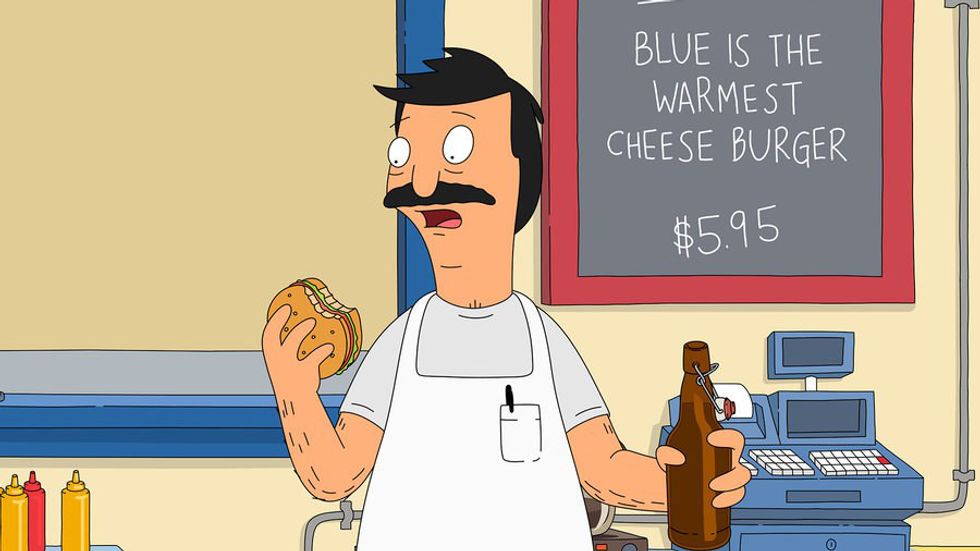From Goodreads:
"Bob Johansson has just sold his software company and is looking forward to a life of leisure. There are places to go, books to read, and movies to watch. So it's a little unfair when he gets himself killed crossing the street.
Bob wakes up a century later to find that corpsicles have been declared to be without rights, and he is now the property of the state. He has been uploaded into computer hardware and is slated to be the controlling AI in an interstellar probe looking for habitable planets. The stakes are high: no less than the first claim to entire worlds. If he declines the honor, he'll be switched off, and they'll try again with someone else. If he accepts, he becomes a prime target. There are at least three other countries trying to get their own probes launched first, and they play dirty.
The safest place for Bob is in space, heading away from Earth at top speed. Or so he thinks. Because the universe is full of nasties, and trespassers make them mad - very mad."
This book was even crazier than you'd expect it to be, based on the title/summary. It's been rated with upwards of 4 stars, on average, on pretty much any site you can find it on. I'd give it 5, despite having some grievances.
I haven't read anything else by Dennis E. Taylor, though I look forward to doing so. In my opinion, this book was everything I hope to find in my next read...almost.
More Summary
To give you a some understanding for the story (without spoiling) let me just say that, as the book description suggests, our funny, witty, and very intelligent protagonist, "Bob," makes it out into space as a Von Neumann Probe. If you don't know the concept behind this science fiction-y contraption, or didn't feel like watching the video I linked, I'll explain it briefly:
The Von Neumann Probe is a space probe which could, in theory, self-replicate, setting the platform for eventual colonization of the human population beyond the Milky Way. What this means is that Bob is the United States-owned operator of a Von Neumann probe, and he must, essentially, clone himself to complete the task.
It is once the clones are created that things get crazy, especially because those clones then replicate, then the third generation of clones starts to replicate. Basically what you wind up with are what I came to think of as "seed" bobs scattering as far as 25 light years away, each discovering crazy-incredible stuff, all with strong scientific basis.
This book was great.
It was funny, it was heartfelt, and it wasn't too hard science-y to the point that I found myself drowning in physics/math jargon. (Although this is, in my opinion, one of the more pleasant forms of drowning). This is an impressive feat, especially considering the author is a computer programmer and the dominating character of the story, Bob, is an engineer.
My version is audio book. I listened to it in smatterings and scrimps on the bus, and this wound up being a delightful experience. Ray Porter's performance was engaging, funny, and emotionally realistic. This is coming from someone who's picky.
Book one of the Bobiverse series did not only explore fascinating, scientific questions such as the limits of AI and the likelihood of life's existence beyond our own planet, but more human questions. In fact, it asked the big human questions:
What does it mean to be human? Do even the most solitary among us really have the capacity to bear the kind of solitude a human space probe must face? How many dimensions, voices, and thoughts does one person contain?
I will note that if it's romance your looking for, this isn't your read. The only love stories that took place were between side characters, Bob and science, Bob and Star Trek, and Bob and Saturn.
This sort of leads me to my next point.
This book was great, but...
(WARNING: SPOILERS)
Reading Taylor felt a lot like reading Crichton (the author of Jurassic Park, Sphere, and The Andromeda Strain). It was imaginative, and clearly written from the perspective of a scientist. Where the two stories differed was in characterization, but unfortunately, I felt that this difference did not extend to representation.
In fairness, the fields explored in We Are Legion (We Are Bob) tend not to be female-dominated. I get that. But when I say that female characters (I mean the few there were) drove none of the decision-making and all of the emotional upheaval of this story, I mean it.
First, we had the mysterious "Jenny," Bob's ex, mentioned only in relation to his anxiety attacks. We know she cheated, but there are no further details given about her, and she's never mentioned again when Bob is resurrected. Then there's his sisters, who he's close with, but who become associated with grief. After all, he dies abruptly and wakes up 100 years later, losing everyone he was close to in his (human) life. Then there's the second-in-command on the Probe Project. She isn't as knowledgeable as Dr. Landers and ultimately informs Bob about Dr. Landers' death. One of the probes Bob is in competition with to be the controlling unit of the Von Neumann Probe. We don't meet her and (as you might have discerned) she doesn't win. His long-lost great great great great niece, who somewhat clouds important decisions Bob has to make concerning Earth's population.
And that's...it. Unless you count the virtual cat, Spike, one of the civilization leaders on earth, and the female-analogous Deltans from Delta Eridani, the lives of whom center around a young, intelligent male juvenile fueling the advancement of "prehistoric" technology.
In and of themselves, the male characters don't bother me. They're great! Bob is funny and amazingly intelligent. Colonel Butterworth is a great leader. What bothers me is that I can't really understand why the author didn't include at least a couple more female characters. Not even one of the other countries' probes Bob came across was female.
It almost felt like Taylor avoided a female presence out of a fear of complicating the storyline. Hey, I guess this makes sense; after all, we can't do with clouding a story that spans the galaxy, human possibility, and the depth of a person with a feminine perspective.
My other discrepancies had to do with the science--in particular, astrobiology. I thought the perspective on what extraterrestrial life might be like was a little too human, for my taste. I consider a better example to be Michael Crichton's Sphere, which referenced a "consciousness" from outside our own galaxy. It was just mysterious and inventive enough to both terrify and ring true.
However, this may have only to do with the fact that I don't know much about astrobiology.
In Conclusion:
This was a great read. If you like science fiction that's funny, engaging, accessible, and awe-inspiring, this is 100% for you. However, if it's romance you seek, or if you're sick of un-egalitarian literature--try something else. (The Girl With Ghost Eyeswas excellent.)
Anyways, if you also read this book, I'd love to hear your opinion. Comment, or share the article with your own perspective!































